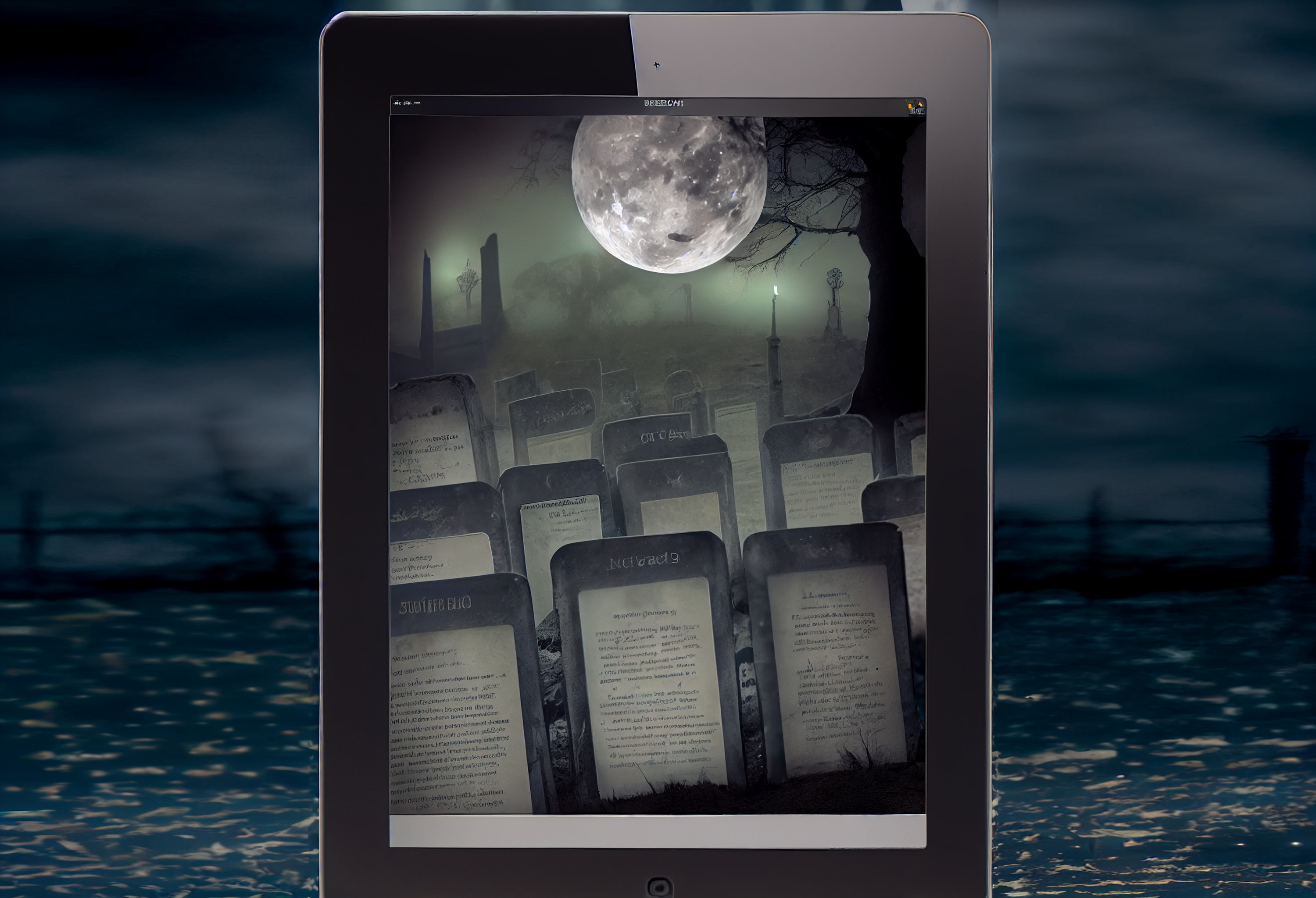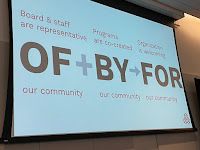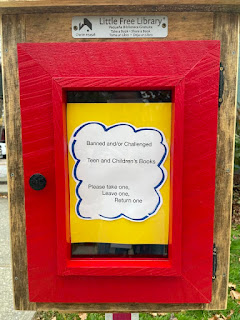Last week was the New York Library Association (NYLA) Annual Conference in Saratoga Springs, NY. Saratoga is a gorgeous community and always a great place to hold the NYLA conference. This conference was our first "normal" conference since COVID turned everything upside down. There were no restrictions and registration was close to what it was in 2019. (The conference in 2020 was virtual and it was scaled back in 2021, due to COVID restrictions.)
There were many enticing sessions - often at the same time. Rather than writing about each session, I want to capture a few highlights and share some resources.
Courtney Harge: The Beautiful Revolutionary Future
The keynote was given by Courtney Harge (she/her), who is the CEO of OF/BY/FOR ALL. OF/BY/FOR ALL helps to equip "civic and cultural organizations to become of, by, and for their communities." Her slides are available and I recommend looking at them. Included in her presentation was an overview of their Change Network system.
What stood out to me is how they coach organizations to reach out into their communities, recognizing that gathering information and building relationships is paramount. Harge noted that we often rush to present a solution without knowing what the community wants or truly needs. People want to be listened to, heard, understood, and partnered with. Rushing in with a fully formed idea means that we are saying that we know best, even if we know nothing about that group or community.
Harge did say, "They don't need you." Those folks and groups who aren't using the library are existing without the library. We might rush in and exclaim, "you need us" or "we have a solution", but do we really know what those folks need? Spending time - a lot of time - getting to know the community and its sub-communities is vitally important.
How do you get to know your community? Attend their events (without talking about the library). Walk through the neighborhoods and visit different businesses (and don't talk about the library). Perhaps try different places in those neighborhoods for coffee or lunch. Ask your staff to introduce you around, if they are willing. However you do it, Harge noted that we cannot immediately pitch an idea, rather we need to listen and learn. We need to understand what our community wants, rather than focusing on the solutions we already have. We need to focus on building trust.
Her presentation was full of wise words (many captured on her slides) including, "Make sure your space isn’t actively harmful.” For me, this also requires a lot of deep listening. Your staff and patrons need to trust you in order to tell you why your organization is actively harmful (if it is) and that trust does not occur overnight. It takes time.
There is a saying, "work at the speed of trust." Trust allows things to happen faster. However, trust takes time to be established and it can be ruined in an instant.
Creating Remote Access to Library Collections
John Raymond, Matthew Kopel, and I did a session on "Creating Remote Access to Library Collections," where we talked about digital lending in a controlled environment. Good to see public and academic librarians in the audience, who are interested in using Copyright Law (Sections 107 and 109), digital technology, and DRM to provide digital access to some of their print collection. We provided lots of information and emphasized the details of CDL (controlled digital lending) including maintaining the owned-to-loan ratio.
NYS Minimum Standards for Public Libraries
I found the session on the New York Public and Association Libraries Minimum Standards to be eye-opening and helpful. While I've studied the minimum standards, it was useful to hear others talk about how they are applied and what happens if a library is not meeting one (or more) of them.
One eye-opening tidbit is that all public library trustees need to fulfill the annual NYS mandated sexual harassment prevention training requirement. If a trustee takes this training in their workplace, they can use that training to fulfill their requirement as a trustee. Not having to take the training twice is good news. The bad news is that some of the sexual harassment training that is being used to fulfill this requirement is structured to meet the requirement and not to be truly helpful (in my opinion).
Mary Lou Carolan, from the Newburgh Free Library, shared their strategic plan during this session. (Having a strategic plan is one of the 14 minimum standards.) I like looking at library strategic plans and this one contains interesting activities.
Carolan noted that the Newburgh Free Library serves a community that is 50+% Hispanic. By hiring someone from the Hispanic community, translating the website, etc. into Spanish, & better outreach, they have increased the number of people from the Hispanic community who are engaged with the library.
Combating Racism in Libraries: Creating Spaces to Educate and Inform Our Communities
I believe these archived webinars were mentioned in the "Reinventing Ethnic Library Services." On this page are:
- Community and Communication in the Dialogue on American Racism - Past, Present & Future
- Using Collection Development and Readers Advisory to Introduce Race Relations
- Inclusive Programming - Every Race, Every Month
- I Write about Race - a panel discussion
- Equity, Diversity, and Inclusion (EDI) in Human Resources & Microaggressions in the Workplace
- Teaching Equity, Diversity, and Inclusion (EDI) and American Culture in ESOL Classrooms
And on this page are:
- Let's Talk About Anti-Asian Hate
- Reintroducing R.A.C.E. with Teens (Racial Awareness and Community Education)
- Evaluating for Inclusive Programming
- Impact of Racism on Community Health
- Microaggressions in Academic Libraries
Good Weather, People, and Food
The weather this year was warm and gorgeous, and everyone took advantage of it! So nice to not have to take a winter coat or worry about rain.
One of the benefits of being in Saratoga is all of the good food. I didn't have one bad meal! Since NYLA will be in Saratoga again next year, I look forward to visiting places like Walt Cafe and Darling Doughnuts again.
Of course, NYLA brings people together from across NYS (and beyond) who are interested in the sessions and then who find a myriad of other library-related things to talk about. The sessions and the conference structure become the backdrop for powerful conversations with existing and new library buddies. I'm thankful to have seen folks whom I only see at NYLA and to make new friends!
Future Conference Locations
Finally, here is where the NYLA Conference is scheduled for the next five years. Yup, alternating between Saratoga and Syracuse!
2023: Saratoga Springs, November 1-4
2024: Syracuse, November 6-9
2025: Saratoga Springs, November 5-8
2026: Saratoga Springs, November 4-7
2027: Syracuse, October 27-30





